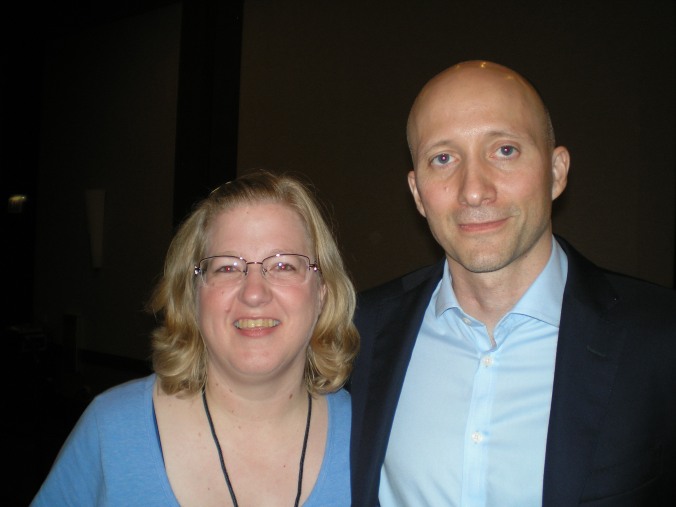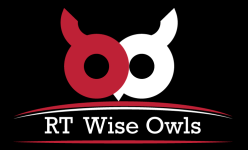Christian Health Care Center published a great post on the benefits of therapeutic recreation.
Read about it here:
http://www.whatcomtalk.com/2017/01/12/christian-health-care-center-2/
Christian Health Care Center published a great post on the benefits of therapeutic recreation.
Read about it here:
http://www.whatcomtalk.com/2017/01/12/christian-health-care-center-2/
I love RT Wise Owls.
Temple provides a great site with research.
Today, research was posted on the Effect of Yoga on Quality of Life in Individuals with Multiple Sclerosis.
It was written by:
Kristen McCrane, 4+1 Accelerated BS in Therapeutic Recreation to MS in Recreation Therapy Student, kristen.marie.mccrane@temple.edu
Pei-Chun Hsieh, PhD, CTRS, Assistant Professor, Temple University, Department of Rehabilitation Sciences, Recreation Therapy Program, pchsieh@temple.edu
Read the article at this Temple – RT Wise Owls link:
https://sites.temple.edu/rtwiseowls/files/2017/01/Effect-of-Yoga-on-QOL_FINAL.pdf

Photo: Dawn Devries (current president of ATRA) and Dr. Aaron Bunnel
Dawn DeVries, the current President of ATRA had spoken during the opening general session.
She had several people to stand in the audience for recognition, including:
The Keynote address:
The Keynote address was given by Dr. Aaron Bunnel from Harborview Medical Center and University of Washington.
His story: he took a year off before going to med school.
He woke up from sleeping on the beach with his friends (at age 22). He ran and dived in the water and suffered a neck injury that paralyzed him. His friends thought he was playing around while he was drowning in the water. He couldn’t move. He wondered about how he would live and if he could still go to Med School and do the things he wanted to do.
He was grateful for recovery but was also stuck at home with little to do.
He had love for nature, friends, competition, and endurance.
He didn’t have a rec therapist during his initial rehab.
He said physical therapy worked well. It was just hard and painful.
I [Danny Pettry] know PT is painful things. I had PT when I was young after dislocated my shoulder form a skateboarding accident. I’m very lucky I dislocated my shoulder and not my neck.
He said there is only so much PT one can do in a day.
He worked at getting back to life. – he couldn’t g hiking and nature or do mountain climbing too well at first. Kicked soccer ball around some, started golf.
With time he increased endurance and strength and decreased his pain!
Danny Pettry comments: Way to go active lifestyle!
He still had the desire to become a doctor. It was his dream and passion
He used adaptive recreation to get back to life: cycling, yoga, swimming.
Benefits for him: decreased falls, better sleep.
He decided to go for med school and it worked out. He did the 30-hour shifts required.
Now – maintaining functioning abilities as he aged. He didn’t want to be on couch at age 60. He wanted to make sure he’d still be working.
Photos before accident – grinning and smiling
After incident – didn’t’ smile too much
A little while later – after adaptive sports – smiling again.
Exercise is good!
He cited benefits of physical activity:
Adaptive sports are beneficial:
Those people with disabilities that participate in adaptive sports are twice as likely as the general populate to be employed!
So what is the strongest predictor that a person is in adaptive sports one year after incident? It is the number of therapeutic recreation sessions during inpatient physical rehab.
There are also positive associations and social integration with adaptive sports.
Dr. Aaron Bunnel argues that recreational therapy hasn’t been given its due.
“Recreation is fun! Social bias kicks in.”
“but it is serious, too”
Dr. Aaron Bunnel argued the importance of advocating our profession.
He said research is a great way to advocate for what we do.
He validated that what we do is important and really matters .
My thoughts about Dr. Aaron Bunnel:
Here is a guy who could have easily given up and used all the excuses in the book for not trying.
However, he was determined, persistent, had dreams and passions. He didn’t give up.
He got back to functioning through adaptive sports and he went on to become a doctor and does so much more! What a great guy! Glad I got to hear his talk today.
Temple University (Philadelphia, PA) had a vendor booth at the American Therapeutic Recreation Association (ATRA) conference in Chicago!
I picked up a neat flyer that advertises their RT Wise Owls.
It is a free database of information with evidenced-based research that is relevant to the scope of Recreational Therapy practice.
Here are the facts that the handout included:
Danny Pettry: this is absolutely one of the best resources for recreational therapists out there.
You can follow RT Wise Owls email updates by going to their web-page and singing up for email updates:
NOTE: I didn’t see Heather Porter (Temple University), but I know she’ll be at the conference because she is presenting. I am going to attend her session. I did see her books at the Idyll Arbor vendor booth:
Submitted by: David R. Austin, Ph.D., FDRT, FALS, Professor Emeritus, Indiana University
In no particular order, here are some things that I appreciate about the Internet. Having the ability to:

As healthcare providers, it is imperative to stay up-to-date on current research and best practices; and update our clinical approaches and interventions accordingly. This requires the consistent reading of journal articles related to one’s area of practice, reflective thought regarding the findings, and incorporation of the findings as appropriate into clinical practice, referred to as Evidence-Based Practice (EBP).
Healthcare agencies are increasingly demanding the utilization of EBP to strengthen outcomes and improve services. Insurance companies are also beginning to request literature that supports the efficacy of interventions and tying this to reimbursement.
Systematic reviews and meta-analyses are the most sought after literature to justify the efficacy of interventions. In a systematic review, all of the studies on a particular intervention are synthesized to determine the current state-of-the-art regarding the intervention (e.g., common outcomes and themes found throughout the studies). A meta-analysis also synthesizes findings from all of the studies on a particular intervention, but it utilizes statistical methods to combine the results from all of the studies to determine the state-of-the-art regarding the intervention.
Recreational therapists can find systematic reviews and meta-analyses, as well as additional types of research studies, on RT Wise Owls (www.rtwiseowls). RT Wise Owls is a free open-access database and information resource center developed by the Department of Rehabilitation Sciences at Temple University that contains evidence-based research and resources relevant to the scope of recreational therapy practice. Here are a few quick facts about the site:
*** More information will continually be added to RT Wise Owls, so be sure to “follow” us by entering your email address on the webpage. If you do this, you will receive notifications of new posts by email.
go here: https://rtwiseowls.com/